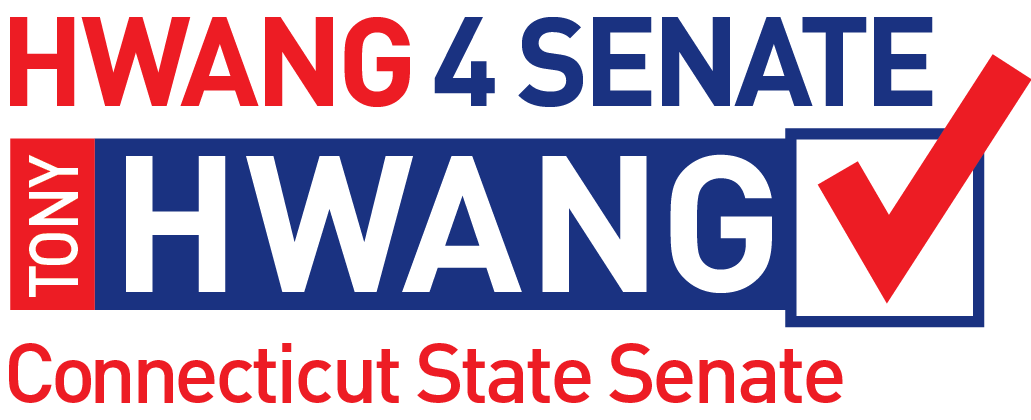HARTFORD, CT – Advocates for Connecticut’s forests and parks joined a bipartisan group of lawmakers Wednesday to support a constitutional amendment to protect state lands from being sold or given away without public input.
“We don’t make land anymore – it’s something worth preserving,” Sen. Tony Hwang, R-Fairfield, said. “I don’t want a society of replicated nature, like Disneyland.”
One of the problems identified by environmentalists is the annual land conveyance bill, which decides what parcels of state land will be given away or sold. The annual omnibus bill usually lands on lawmakers desk shortly before they adjourn and leaves many wondering whether the state is getting the best bang for its buck.
Usually, according to environmentalists, it’s not.
Remember the Haddam Land Swap? In 2011, the General Assembly and Gov. Dannel P. Malloy approved giving 17 acres of land along the Connecticut River in Haddam to Riverhouse Properties to build a hotel and mix of shopping. In exchange, the state was given 87 acres of land adjacent to the Cockponset State Forest.
Environmentalists felt it was a bad deal for the state.
That’s why they’re again supporting a resolution https://www.cga.ct.gov/asp/cgabillstatus/cgabillstatus.asp?selBillType=Bill&which_year=2017&bill_num=SJ+39 that would require a two-thirds vote of each chamber before public land is sold, swapped or given away.
The same resolution was approved last year by the General Assembly, but it must be approved against this year in order to appear on the statewide ballot in 2018.
“We need to pass this bill,” Sen. Kevin Witkos, R-Canton said. Witkos added that he “never, ever” wanted to see park and forest land “turn into parking lots and buildings.”
But that’s what happens when the state uses the annual conveyance bill to give away state property to developers.
“We need to keep up the good fight,” to support park funding and pass the constitutional amendment, Witkos added.
Department of Energy and Environment Protection Commissioner Robert Klee says he supports the legislation.
“The DEEP supports the resolution because it may ensure that public lands that are acquired for public use and benefit are protected,” Klee said.
There were only two people who testified against the legislation during the public hearing.
JACK KRAMER / CTNEWSJUNKIE
Eric Hammerling, executive director of the Connecticut Forest & Park Association, and lawmakers
“A constitutional amendment would guarantee that local control of land within a municipality , owned by the state, is completely eliminated,” Lori Hopkins-Cavanagh, a real estate broker from New London, said. “This bill strips the power of local representation and allows interests outside the municipality to determine and manipulate use of land.”
Michael J. Gaffey, of Old Lyme, who also opposed the legislation said the state needs a moratorium on open space purchases until it gets its fiscal house in order.
But the environmental community, which is also seeking a boost in funding to help maintain state parks, seemed visibly united on the issue Wednesday.
Displays from people who favor protecting parks and forest land lined the underground walkway between the Legislative Office Building to the state Capitol.
Eric Hammerling, executive director of the Connecticut Forest & Park Association, made a passionate pitch to legislators to not forget the state’s forest and parks.
“Protecting state lands and generating adequate funds for their upkeep are critical issues the General Assembly is considering, and we are greatly encouraged by the bipartisan champions we see here today,” Hammerling said.
DEEP budget cuts last year resulted in a 45 percent reduction in seasonal workers’ hours, said Hammerling. The cuts were enacted after the July 4 weekend, and three state park campgrounds were closed, he said.
“The seasonal workforce continues to be targeted for cuts,” Rep. Melissa Ziobron, R-East Haddam, said at Wednesday’s press conference.
Gov. Dannel P. Malloy’s budget proposal for next fiscal year reduces DEEP’s budget by $2.2 million. That’s on top of the $1.85 million budget cut that was carried forward from this fiscal year.
Meanwhile, Connecticut environmentalists have no friend in President Donald Trump, who is proposing to cut the federal Environmental Protection Agency budget by 31 percent. State officials state that would translate into a $6 million cut to Connecticut’s environmental budget.
Lawmakers are considering proposals to generate revenues to sustain the parks and forests. One proposal, called “Passport to the Parks’’ would raise $14.5 million per year through a $10 vehicle registration fee to be paid every other year.
The “passport” would allow drivers with Connecticut plates to enter state parks for free, while visitors from other states would have to pay entry fees. The legislation that would have implemented the proposal died in committee, but supporters are still hoping the idea could come up as part of the state budget.
Another bill would create a nickel tax on plastic bags. The more than $16 million annually would be set aside to help maintain state parks. The proposal is headed to the Finance, Revenue, and Bonding Committee.

